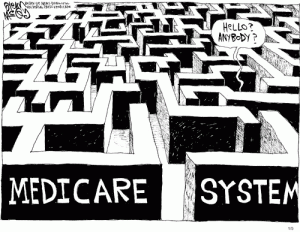By Steve Moran
A few weeks ago, my Foresight TV guest was Dan Lavender, CEO of Moorings Park, a three-campus, not-for-profit senior living life plan community in Naples, Florida. Moorings Park is decidedly and unapologetically an upscale (expensive) senior living experience.
Cringeworthy
Does the idea of high-end, even luxury, senior living make you cringe?
One of the biggest discussions in the world of senior living is about the middle market problem. Data coming out of the National Investment Center for Seniors Housing and Care (NIC) suggests a large affordability gap that will grow dramatically in the coming years with the aging of boomers.
This perception was further reinforced by a recent article in the Seattle Times, “Seattle-Area Assisted Living Comes With a Crushing Price Tag,” where they make the point that Seattle is one of the most expensive senior living markets in the country. (There are reasons for this that are mostly out of the control of owners and operators).
As a result of all this, high-end, luxury senior living might seem cringeworthy, selfish, cruel, or something — and one might even wonder at the morality of creating and operating upscale senior living. I am going to confess that even though I have a strong “do-gooder” sense, I have not struggled very much with this. My thinking has been that most well-off older people worked hard to accumulate and save their wealth and that they have to live someplace and deserve to enjoy the fruits of their labor.
Never Thought About It That Way
During the course of our conversation, Dan made a point I had never really thought about before. Every time (maybe nearly every time) there have been major advances in the lives of those in the middle class, they have come about because of lessons learned when creating things — luxury things — for the wealthy.
Henry Ford created the first car for the masses, being priced at around $250, compared to $1,000 and up for all other cars. Ford would not have been able to figure it all out without the first cars being built for and paid for by the wealthy.
This is a repeating pattern: watches, pens, calculators and typewriters, air travel, computers, electrical lights and appliances.
It is a better way to think about the senior living ecosystem. We need the high-wealth communities as laboratories that will create new and better ways of serving residents, and those ideas will perk down to the middle market and lower.










